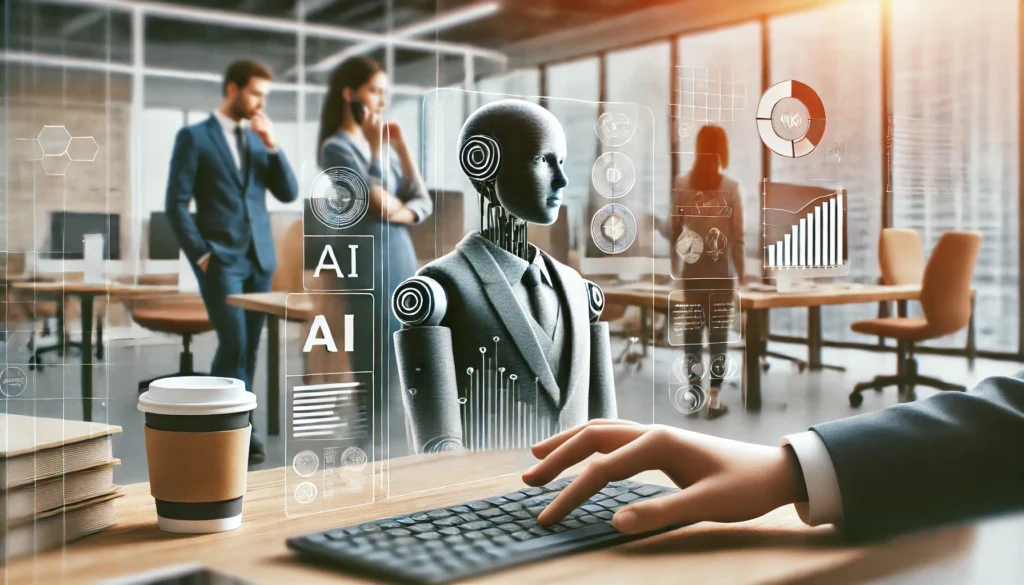The world of Business-to-Business (B2B) e-commerce is undergoing a massive transformation. The digital landscape has evolved drastically over the past decade, and businesses are reaping the benefits of new technologies and strategies. With B2B e-commerce on track to surpass $1.8 trillion by 2025 in the U.S. alone, it’s clear that this space is full of potential.
As we move forward into 2025 and beyond, several key trends are poised to shape the future of B2B e-commerce. Let’s dive into the most exciting developments that businesses need to pay attention to in order to stay ahead of the curve.
1. AI and Machine Learning Enhancing Personalization
Personalization is no longer just a buzzword; it’s a necessity in modern B2B e-commerce. In today’s highly competitive digital market, businesses need to provide tailored experiences for their customers to drive loyalty and increase sales. Artificial intelligence (AI) and machine learning are key players in this effort.
AI can analyze massive amounts of data from past interactions and predict future behaviors. This enables businesses to offer personalized product recommendations, create targeted marketing campaigns, and even optimize pricing strategies in real-time. In fact, AI-powered solutions are already enhancing the customer experience by offering automated, customized communications through chatbots and email marketing tools.
For instance, businesses can use AI to track customer browsing behaviors and suggest products they are more likely to purchase. The power of personalization increases customer satisfaction, and in turn, boosts conversion rates and lifetime value.
2. Rise of B2B Marketplaces
Over the past few years, B2B marketplaces have become increasingly popular, and this trend is set to continue into the future. These platforms offer businesses the chance to connect with suppliers, manufacturers, and other buyers all in one place, significantly simplifying the buying process.
Think of it as an Amazon or eBay for businesses, but focused on B2B transactions. Marketplaces like Alibaba, Amazon Business, and ThomasNet are leading the way in this trend. These platforms provide businesses with access to a vast array of products, suppliers, and partners from all over the world, making it easier to source materials, manage supply chains, and scale operations.
Additionally, these marketplaces have been optimizing their platforms to include advanced features such as easy payment processing, enhanced customer service, and streamlined logistics solutions. As more businesses recognize the convenience and efficiency of B2B marketplaces, this trend will only grow stronger.
3. Mobile-First Strategies in B2B E-Commerce
We’re in a mobile-first world, and B2B businesses are beginning to realize that the customer experience should be seamless across all devices, especially mobile. According to recent studies, over 60% of B2B buyers now use mobile devices for purchasing decisions, research, and even placing orders.
In response, many B2B companies are optimizing their websites and e-commerce platforms for mobile use. Mobile-optimized websites, apps, and even mobile-specific features—such as voice search and location-based services—are becoming critical components of B2B e-commerce strategies.
Mobile commerce provides B2B buyers with the flexibility to shop on-the-go, making the purchasing process faster and more convenient. As mobile usage continues to rise, businesses that fail to adopt a mobile-first approach risk losing out on valuable opportunities.
4. The Integration of AR/VR in the Buyer Journey
Augmented Reality (AR) and Virtual Reality (VR) are no longer limited to the consumer market; they’re making their way into the B2B space. These immersive technologies are enhancing the buyer journey by offering an interactive way to engage with products.
For example, AR enables buyers to virtually “try on” products or see how they fit within their own workspace or production environment. In industries like manufacturing, construction, or design, this could be a game-changer. Similarly, VR can offer virtual tours of facilities, product demonstrations, or even training sessions for buyers, giving them a more hands-on experience with the product without being physically present.
These technologies provide businesses with the ability to build stronger relationships with customers by offering more engaging, dynamic, and memorable experiences. As AR/VR technologies continue to evolve, we can expect them to play an even bigger role in B2B e-commerce.

5. Automated and Streamlined B2B Transactions
Automation is already a key feature in the B2C world, and it’s quickly making its way into B2B e-commerce. The future of B2B e-commerce will see more businesses adopting automated solutions for everything from inventory management to invoicing and customer relationship management.
With the rise of automation tools, B2B companies can streamline many manual processes. This leads to faster order fulfillment, improved accuracy, and lower operational costs. For example, automated inventory management ensures that products are always in stock, while automated invoicing reduces errors and speeds up payment cycles.
Additionally, businesses are using automated solutions to create dynamic pricing models that adjust based on demand, supply, and competitor prices. These technologies not only save time but also allow B2B companies to remain competitive by offering better pricing and services to customers.
6. Data-Driven Decision Making
Data is king in the modern world of e-commerce, and the future of B2B e-commerce will see an even greater emphasis on data-driven decision-making. Companies will leverage big data to optimize every part of their operations, from marketing and sales to supply chain and inventory management.
B2B businesses will be able to make more informed decisions by analyzing trends, customer behavior, and real-time data. This allows them to adjust their strategies accordingly, reduce risks, and maximize profitability. For example, data-driven insights can help businesses identify emerging market trends, improve customer targeting, and optimize the pricing of their products and services.
As businesses continue to invest in advanced analytics tools and technologies, the role of data will only become more critical in shaping the success of B2B e-commerce strategies.
7. Sustainability and Ethical Business Practices
As consumers and businesses alike become more conscious of their environmental impact, sustainability is becoming a driving force in B2B e-commerce. B2B companies are under increasing pressure to implement sustainable practices across their operations, from sourcing materials to manufacturing and shipping.
Many businesses are incorporating green practices into their supply chains, such as using eco-friendly packaging, reducing carbon emissions, and sourcing materials from responsible suppliers. Additionally, ethical business practices are gaining importance as buyers look for suppliers that align with their values.
Sustainability is no longer just a trend; it’s becoming an essential factor in B2B purchasing decisions. Companies that fail to embrace sustainable practices may find themselves losing business to more eco-conscious competitors.
8. Blockchain Technology for Enhanced Security
Blockchain technology has the potential to revolutionize B2B e-commerce by improving security, transparency, and trust in transactions. In B2B transactions, where the stakes are high and the supply chains can be complex, blockchain provides an immutable ledger that records every step of the transaction process.
By using blockchain, businesses can ensure that every transaction is secure, traceable, and tamper-proof. This builds trust among partners and customers, reduces fraud, and enhances overall efficiency.
Blockchain could also simplify cross-border transactions by eliminating the need for intermediaries and reducing the time and costs associated with international payments. As blockchain technology continues to mature, its impact on B2B e-commerce will only grow.

How These Trends Will Shape the Future of B2B E-Commerce
The future of B2B e-commerce is undeniably exciting. With the rapid advancements in AI, machine learning, mobile optimization, AR/VR, automation, data analytics, and sustainability, the B2B landscape is set to evolve in ways we’ve never seen before. By staying ahead of these trends and adopting new technologies, businesses can position themselves for success in this ever-changing market.
To remain competitive, businesses must continuously innovate and adapt to the evolving demands of the digital world. Whether it’s improving personalization, embracing mobile-first strategies, or adopting sustainable practices, the opportunities in B2B e-commerce are vast—and those who capitalize on them will thrive in the years to come.





